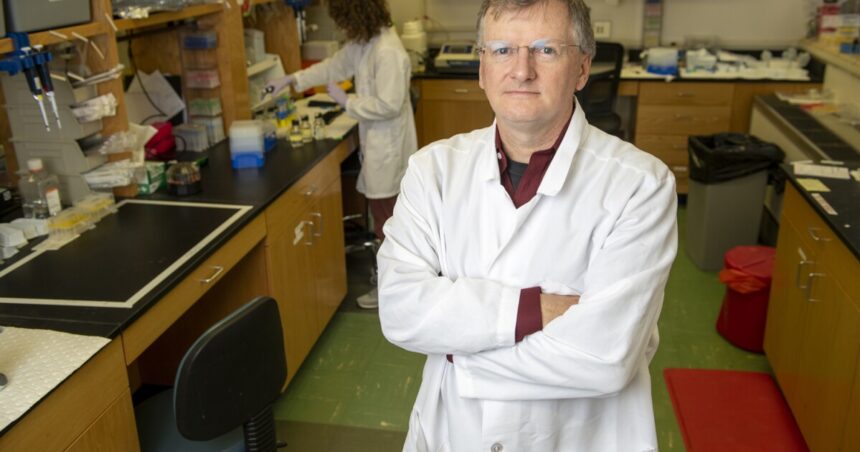MISSOULA — The University of Montana Center for Translational Medicine has initiated Phase I clinical trials with cancer patients for a compound it discovered.
Inimmune Corp., a Missoula-based biotechnology company, is collaborating with the center on this endeavor.
UM researcher and center director Jay Evans expressed that reaching human clinical trials is a significant achievement for the University, underscoring the importance of research at UM.
“Since joining UM in 2016, our aim has been to advance UM research discoveries to treatments that can be safely utilized in people,” Dr. Evans remarked. “Transitioning from pre-clinical to clinical stages of drug development is challenging, and it’s been rewarding to work with a local Missoula company and progress a university-discovered technology to human clinical trials.”
The first human trial for the drug, INI-4001, will be conducted in Australia, delivering the compound via IV to patients with advanced solid tumors.
INI-4001 has demonstrated the ability to stimulate the immune system to combat cancer in previous studies using animal models, according to Evans.
The initial human trials are an ascending-dose study, with the dosage starting low and gradually increasing to assess safety and tolerability.
“INI-4001 is an innovative compound that could benefit patients with various types of cancer, without the typical side effects of conventional cancer therapy,” stated Inimmune’s chief medical officer, Dr. Jon Ruckle. “Initiating this clinical trial in cancer patients is a significant milestone and showcases the collaboration between UM and Inimmune.”
Originally designed at the University as an adjuvant to enhance vaccine effectiveness, INI-4001 will now be evaluated for its potential in fighting cancer.
Inimmune is a private biotech company specializing in immunotherapies, vaccines, and vaccine adjuvants.
Inimmune operates within MonTEC, UM’s Missoula-based business incubator. The Center for Translational Medicine, Inimmune’s partner, focuses on helping students and staff commercialize UM research.
Evans noted that INI-4001 was created with assistance from UM graduate and undergraduate students working in campus labs.
“UM students are vital to our daily operations as they make new discoveries in our labs,” he emphasized. “The Center for Translational Medicine at UM equips students for careers in biotechnology, benefiting both UM students and Inimmune, which recruits well-trained UM graduates from the CTM program.”
Collectively, the UM center and Inimmune employ around 70 individuals on campus and at MonTEC across the river.
More local news from KPAX





